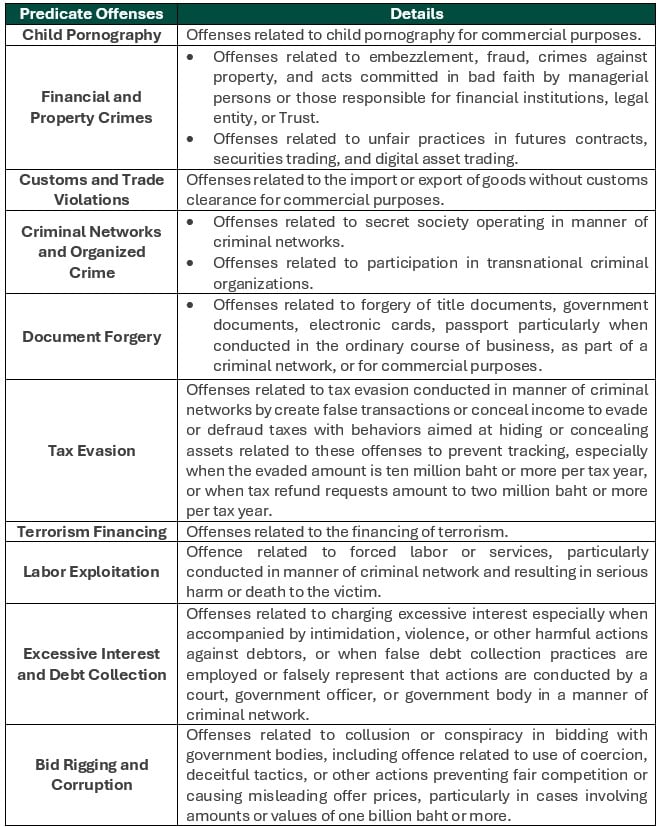Thailand: New Draft Amendment of Anti-Money Laundering Act B.E. 2542 (1999)
DFDL Thailand
10th November 2024
This new draft amendment of AMLA introduces significant changes, broadening the scope of “predicate offenses” and enhancing the legal framework for anti-money laundering and counter-financing of terrorism, reflecting Thailand’s ongoing efforts to strengthen its legal framework against money laundering and related financial crimes, in line with international standards set by FATF.
Please Login or Register for Free now to view all updates and articles
In addition to free-to-view updates and articles, you can also subscribe to the full Legal Centrix Vietnam Service including access to:
- Overview notes on the law
- Thousands of high quality translations of legislation covering all key business areas
- Legal and tax updates
- Articles on important legal and tax issues
- Weekly email alerts
- Sophisticated web platform and search
Legal Centrix is trusted by top law and accounting firms.
DFDL Thailand
- Thailand
- dfdl.com
In 2005 DFDL established a permanent presence in Bangkok to better serve the needs of our growing client base in Thailand, especially those businesses and stakeholders investing across the region. Since then, we have expanded and solidified a wide variety of practice groups. These include: corporate and commercial; mergers and acquisitions; energy, mining and infrastructure; banking, finance and technology; real estate; employment; and tax.
Our Thai team works closely with our integrated network of offices across the region to provide international standard legal and tax services, with in-depth and comprehensive knowledge of the local environment. Our legal advisers have practical experience in a wide range of legal areas, from the feasibility phase through to the operation stages of an investment project, and can provide legal and tax advice on all aspects of Thai law.
The Bangkok office is also where a number of DFDL’s regional advisers are based, all with extensive and longstanding experience is complex multi-jurisdictional matters.
Click here to view the author's profile
Author

-
DFDL Thailand
Thailand
Tags
Related Content
- No related content
Recent updates
- Decree 356/2025/ND-CP On Detailed Regulations On A Number Of Articles And Measures For Implementing The Law On Personal Data Protection
- Vietnam: Mediation in Intellectual Property disputes
- Vietnam: Recent Regulations On Auctioning Land Use Rights For Residential Land Allocation, Capital Contribution Activities in Credit Institutions, and Personal Data Protection
- Vietnam: Third-party funding in the resolution of investment-related disputes: A financial risk-reduction method for doing business with Europe
- Vietnam: Shareholders’ agreements indirectly recognized via beneficial ownership
- Vietnam: Electronic signatures in investment registration dossiers: Inevitability and practical challenges


